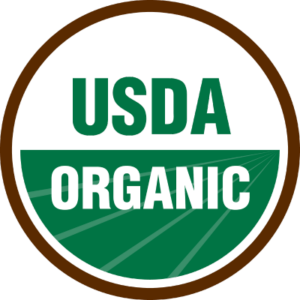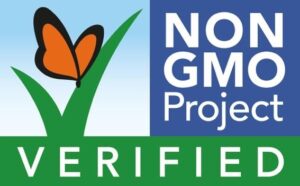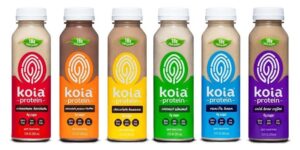Labeling your Beverage Brand with the Organic Certified seal can help you target and serve specific consumer groups, but often at a cost.
This is a question most Beverage Brand will entertain if they are entering the natural beverage segment: Should we get certified organic?
As with most questions regarding ingredients, certifications, or positioning, the primary consideration is: Is this something your core target consumer ranks highly in their decision-making criteria for beverage purchases?
The answer here may require a bit of consumer research – friends and family discussion, online surveys, focus groups, or other consumer research reports available online for purchase.
If findings reveal that a meaningful percentage of potential target consumers value certified organic products, or that these consumers may be heavy-users, or are early adopters that can spread positive reviews and proselytize on the brand’s behalf, then organic certification may be meaningful component to your brand benefits.
Now the brand must consider the cost, supply chain, and manufacturing implications of the decision to certify organic.
Certified Organic Implications
As one may expect, organic ingredients will commonly come at a price premium to non-organic counterparts.
The cost variance will vary by ingredient but will typically range from 5% to 20% premium for certified organic material. This, however, is not the only cost implication to consider.
There will be an upfront cost to the certification process, which may range from $750 to $2,500 depending on the certifier and if a rush priority is required.
Additionally, the universe of contract manufacturers that are certified organic is smaller than conventional facilities, which may mean the point of production may be farther from the point of distribution and sales, increasing freight and logistics costs.
Additionally, depending on the ingredient, organic variants may be more prone to seasonality and shortages than conventional counterparts, again increasing logistical complexity and the need for redundancy in the supply chain.

How to Certify Your Beverage as USDA Organic
There are many certifying bodies that perform organic certification services and provide the USDA Organic seal, with Oregon Tilth and QAI as examples of two commonly used certifiers in the U.S. There are four primary classifications of organic certification, based on percentage of certified organic material, by volume (excluding water and salts).
- Certified 100% USDA Organic: All material in the beverage must be certified organic. This allows the use of “100% USDA Organic” and the placement of the USDA Organic seal on the brand’s primary display panel
- Certified USDA Organic: to use “Organic” as a descriptor on the front or primary display panel of your beverage along with the appropriate USDA Organic seal, the beverage must contain 95% or higher certified organic material by volume.
- “Made with [specific organic ingredient]” statement on the primary display panel is allowed for beverages containing at least 70% certified organic material. The USDA Organic seal is not allowed anywhere on the container.
- Specific organic ingredient listing: If the beverage contains less that 70% certified organic material, the ingredient list may include language such as “organic mango puree,” however no mention of “organic” is allowed on the primary display panel and the USDA Organic seal is not allowed anywhere on the container.
Once you’ve determined the appropriate classification for your beverage, confirm with your formulator that the ingredient composition is accurate and calculates to the appropriate certification level desired.
Collect the certified organic documentation from each ingredient supplier. Now you are ready to select a certifier.
If you’ve already identified a contract manufacturer with organic certification, it is strongly recommended to use the same certifier for your brand. This will expedite the process as the certifier is already familiar with the facility and the facility can advocate for the brand.
Expected lead time for certification can range from 6-12 weeks, however a few certifiers offer expedited service for a premium fee (est. $2,000).
For more information: https://www.usda.gov/topics/organic

Alternatives to Organic
You may find brands on-shelf at Whole Foods or similar natural/organic grocers and assume they are organic certified, brands like Koia, Rebbl, Poppi, Olipop, etc.
These brands all feature natural ingredients, however defer to alternative claims/certifications in lieu of organic certification, including: Non-GMO, Gluten Free, Vegan and/or Plant-Based.
These messages may be as meaningful to the target consumer as “organic,” without (or with a lower) burden on cost of goods and operational complexity.

What is the right path for your brand?
This may require a blend of insight (research) and instinct, as well as a clear understanding of the implications both short term and long term of this decision.
Organic certification may provide a differentiating factor amongst the competitive set, or broaden appeal of the category to new users.
Consumers may value the clarity of organic certification and be willing to pay a price premium to support organic agriculture and for peace of mind regarding the foods and beverages they consumer.
It is a complex decision and one where it may benefit to discuss with a beverage professional or consultant to assess and help chart the appropriate path forward.

